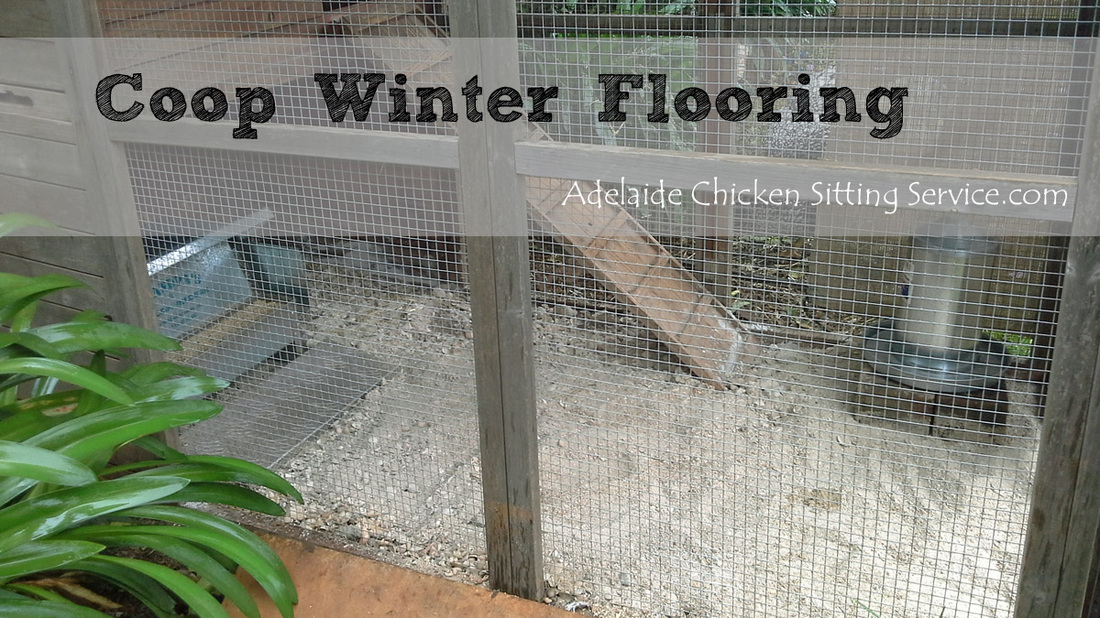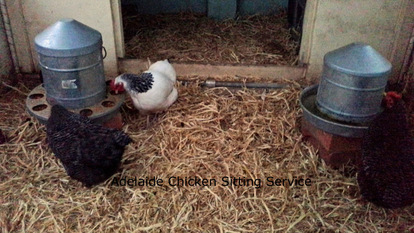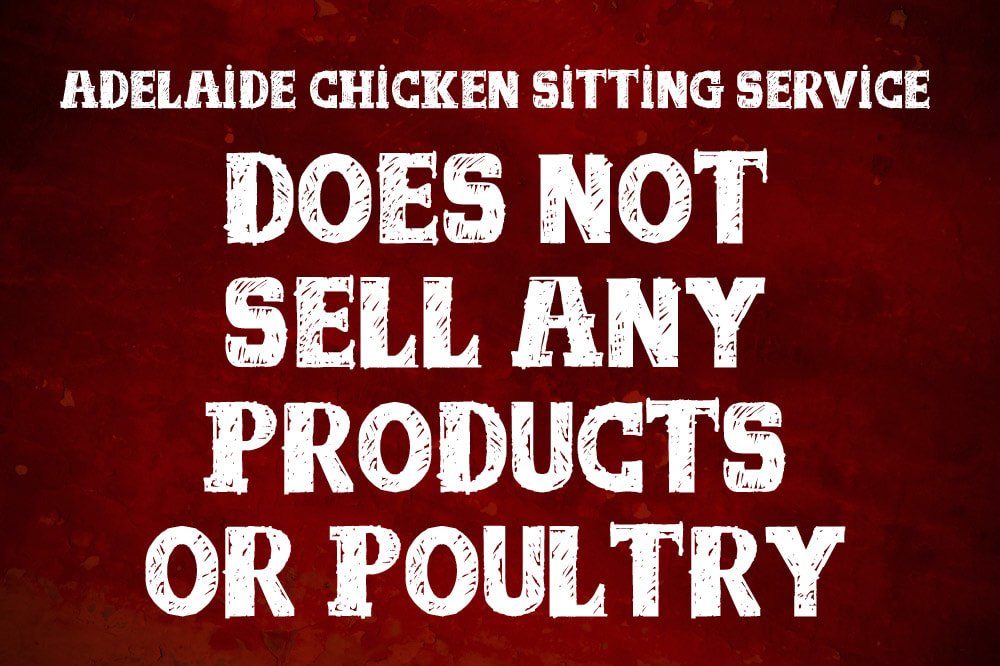Constant wet feet, moldy and clumping flooring or very dusty environments are the biggest health hazards in the shed, so finding the right type of coop flooring for your yard is essential. Respiratory problems arise from the wrong type of flooring materials used, so that is why it is so important.
Narrower runs usually have the highest chance of the flooring materials getting wet, so choices become far more limited.
The wider and more enclosed a coop and run is, the wider the options become as the materials are likely to stay drier.
Firstly, investigate if you can close up your coop sides a little more with hessian sacks or small tarps that can be attached to the chicken wire to offer a little more protection. Consider permanent boards around the bottom of the coop as a wind and rain shelter rather than all open chicken wire.
Secondly, offer some height for the poultry to hop up onto such as cuts of logs or thick branches, so their feet have an opportunity to dry out during the wettest of days.
If you have never placed straw on the tray beneath their roosting area, don't start now, thinking that you are helping them to stay warmer. Chickens are very adept at using their own body heat with one another. Adding straw where there was none before may only confuse their egg laying habits, ignoring the nesting boxes in favour of a new (more messier - droppings) area to try out. If you add straw, make sure that it is in an area that is well sheltered from any rain.
Flooring Types
Deep Litter flooring is when biodegradable natural floorings (straw, wood shavings, rice hulls, etc.) are laid down in the coop and then over time becomes mixed with food scraps and manure. It is constantly turned by the poultry who scratch though it, so it becomes a well turned compost for the garden. If kept very dry inside the shed, the environment can become dusty. If you suffer from asthma, you may not choose this form of flooring, alternatively use a respirator/dust mask when cleaning out the shed.
Deep Litter must be cleaned out completely at least every couple of months. Ideal for the home gardener.
Colder Flooring includes shellgrit and bare concrete which can be surface cleaned. Shellgrit has the advantage of providing grit, calcium and gunking up visiting snails and slugs to the poultry's food source. Bare concrete can be easily scooped and swept from with the option of a high pressure hose to do a thorough clean. In theory, easier to control lice and mite outbreaks
Cold Flooring, such as shellgrit or builder's coarse sand need to be raked over in winter to be kept aerated. Clean out as needed. Less work in the year.
What materials are right for your coop
Straw - Ideal for the enclosed shed that does not get rain inside. Wet straw will go moldy. This is a deep litter method.
Wood Shavings - Ideal for the enclosed shed that does not get rain inside. Wet shavings must be untreated timber; pine is the most common variety. No dust (unlike sawdust). This is a deep litter method.
Coarse Shellgrit - Ideal for the more exposed coop that may get wet inside. Deep level will ensure that water is not in direct contact with the feet. No or low dust levels. Needs to be raked in the winter months to keep from smelling.
Coarse Builders Sand - Ideal for the enclosed shed that does not get rain inside. Never use children's sandpit sand as it is too fine. It must contain different levels of grit to stay open and free draining enough. Will require raking in the winter months and can be added to shellgrit. Will become smelly and green if it stays wet for a long duration.
Rice Hulls - Most commonly used in VIC and NSW, very popular amongst horse owners. Highly absorbent and very light but dust can be a problem which can irritate throats and eyes of poultry.
Dry Garden Mulches (e.g. Sugar Cane Mulch) - Ideal for the enclosed coop that does not get rain inside. Can develop mold. Lighter than straw. This is a deep litter method. (Warning: May contain respiratory contaminates)
Materials such as sawdust, shredded newspaper, bare earth and leaves are not ideal.
Hopefully you are a little more aware of what to look out for and what might be a good flooring for your coop. Regular maintenance is the key to good poultry health. Poultry that are permanently in an enclosed run may benefit more from a deep litter for foraging and dusting. Free-range girls might not spend much time in their coop unless hungry, thirsty, ready to lay or roost for the night, so may not need a biodegradable floor material. Look after your birds and they will reward you.





 RSS Feed
RSS Feed